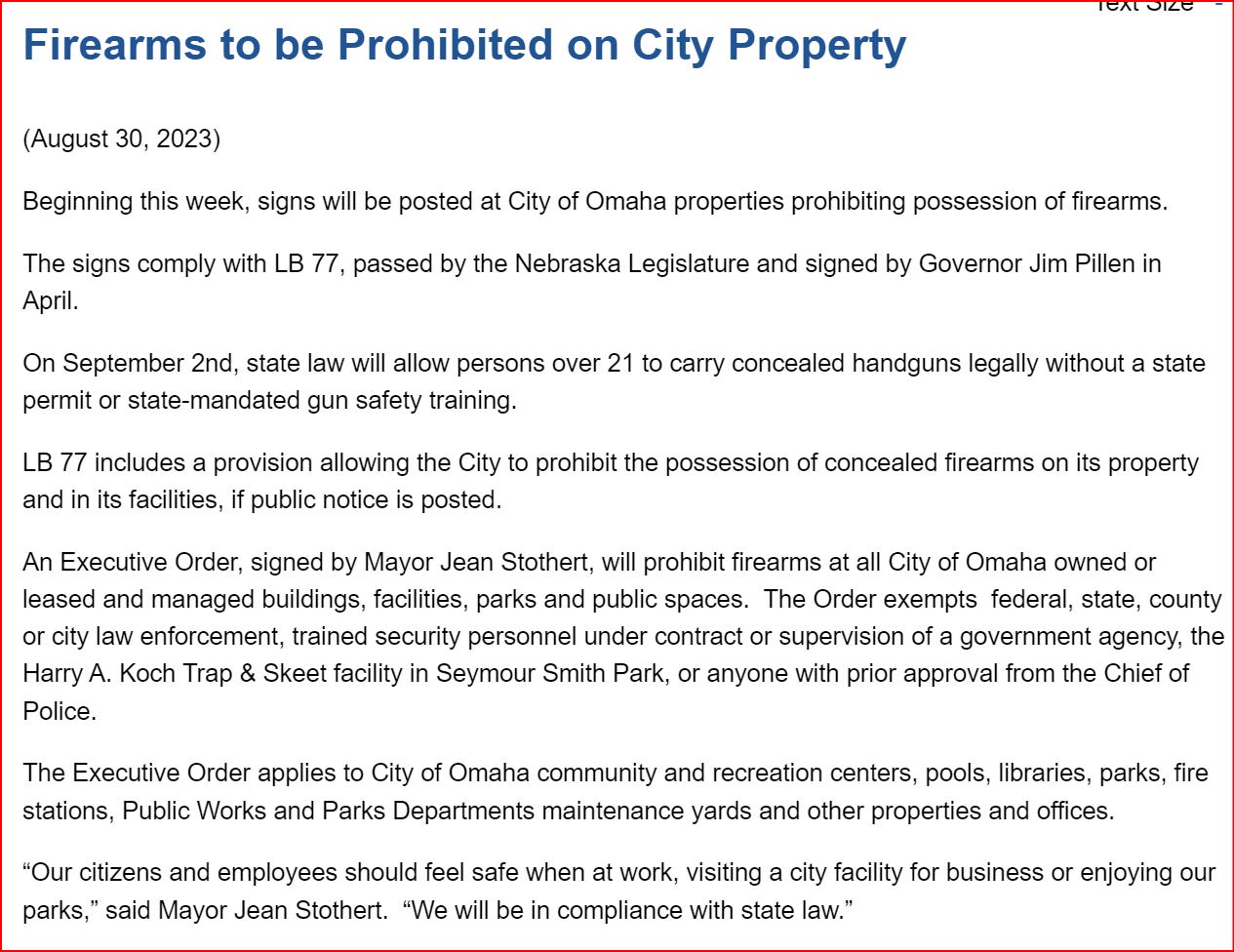Read part 1 - how the bill got out of committee
Read part 3 - the final vote to pass into law
Omaha is freaking out. They are the highest-population city in the state and when it comes to gun crimes, they lead the state.
Yesterday, the mayor of Omaha, through executive order, banned guns from all city properties because the state has removed background checks and training as well as nullified nearly all city ordinances, including the ones in Omaha. They are looking for any loophole to enact public health policies to keep people safe from gun violence.
The question one might ask is, was there a time this bill could have been stopped? Did the gun lobby really have the votes, every vote, to get this through? The answer is that two senators showed mixed feelings on the bill on a day that the majority had a two people missing, did have the chance to stop LB77, and chose not to. They were the only two that could have changed the direction of the bill, and we didn’t need both of them to do it. A single change of vote, by only one of them, would have altered history for the public good.
Stay with me, and we’ll review it together. All bills need to go through the same basic process in order to be a law. There is the committee vote, three rounds of votes on the floor, and then on to the governor. At each stage, there are maneuvers and strategies that senators can use to try and get the outcomes they are looking for to stop a bill, change a bill, or push it through to passing.
Voting Stages:
Committee Vote: As we reported before, Omaha Metro senators were the majority voting block to get LB77 out of committee. There is an argument to be made that the legislature had the votes to force it out of committee and that’s likely true. However, that would have delayed the bill, and possibly, run out the clock.
Voting round 1 (general file): 36 senators voted to break the filibuster (called cloture) and they needed 33. The vote included all Republicans and 4 Democrats. Then, the same 36 senators voted to move the bill forward. 2 senators changing their vote would not have impacted the forward movement of the bill.
Voting round 2 (select file): 33 senators voted to break the filibuster (called cloture) and they needed 33. Then, only 31 senators voted to move the bill forward, only 25 are needed.
There it is, in round 2^
Two senators waffled on their votes and could have stopped the bill, but did not. The two votes were back to back and they knew that of the two votes, only one of them gave them the power to change the outcome of the bill. Who were the two senators that broke the filibuster?
Senator Justin Wayne of Omaha, jwayne@leg.ne.gov
Senator Terrell McKinney of Omaha, tmckinney@leg.ne.gov
What happened in round three (final reading)?
Good question. On April 19th, 2023 both Senator Wayne, and Senator McKinney, didn’t bother to show up in the morning and vote one way or another. The floor had the 33 votes they needed to break the filibuster, and then all 33 voted to pass the bill on to the governor. Both senators were in their seats later in the day and available to vote on a different bill in the afternoon, as you can see here.
Why did this happen?
While we cannot know their hearts on what caused them to vote with the gun lobby to remove all authority from Omaha to manage the gun violence problem and get rid of training and background requirements, we do know that we’ve seen this from Senator Wayne in the past and previously reported on his political history and vote, “How the NRA punked Nebraska’s District 13”.




